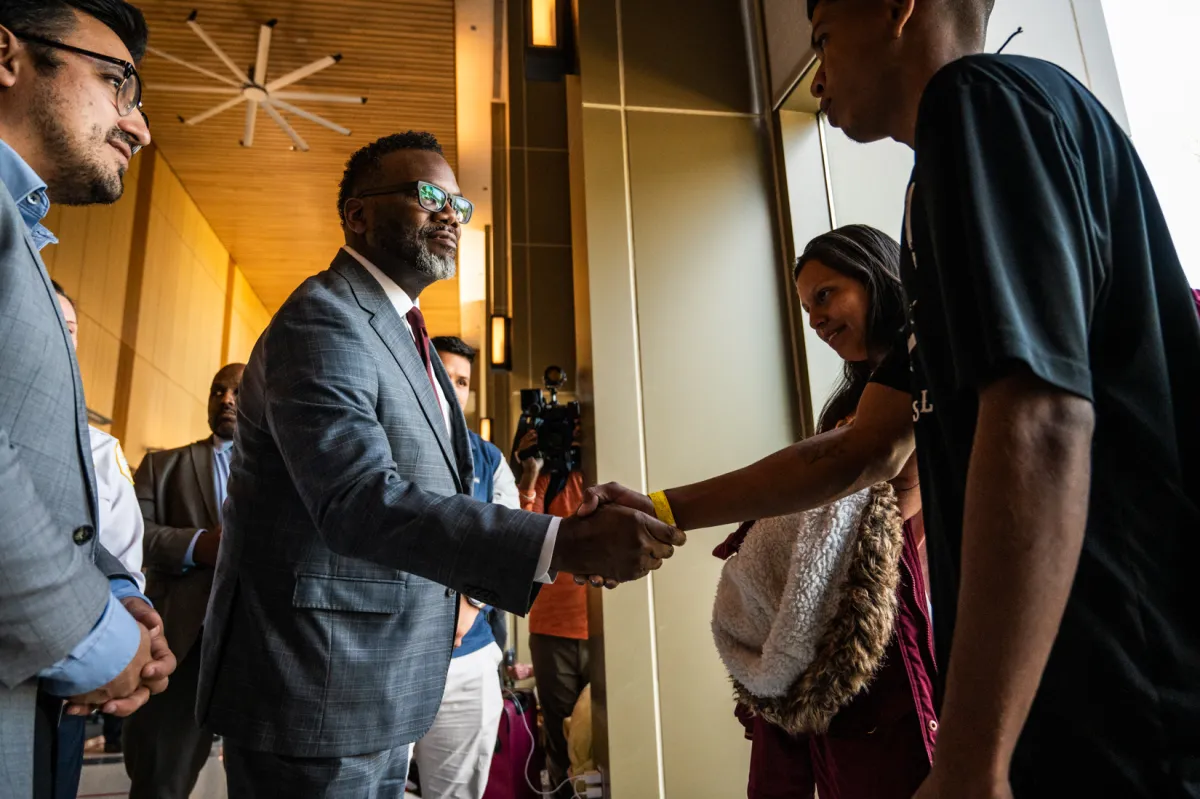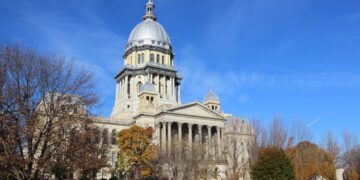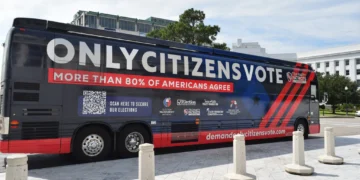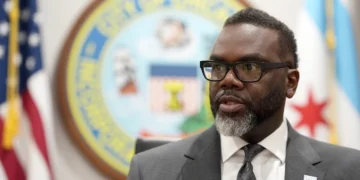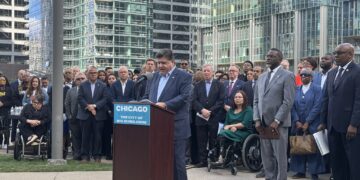In a move that has stirred significant controversy, Chicago has begun relocating migrants from police stations to various churches as part of Mayor Brandon Johnson’s Unity Initiative. This action, emblematic of Governor JB Pritzker and Mayor Johnson’s broader approach to handling the migrant influx, has sparked intense criticism for its perceived failure to address the long-term consequences for Illinois residents.
The relocation process, which saw 80 migrants moved from the District 5 Police Station to four churches, has been touted by its proponents as a humanitarian effort. Pastor John Zayas of Grace and Peace Church emphasized the initiative’s focus on providing “hope” alongside housing. However, critics argue that such moves are band-aid solutions, neglecting the deeper issues of illegal immigration and its impact on local communities.
Despite the positive intentions declared by Torrey Barrett, CEO of the KLEO Center, the influx of migrants – now totaling over 9,000 in Chicago shelters – has raised serious concerns about resource allocation and community safety. Residents of the West Side’s Galewood neighborhood, in particular, have expressed strong opposition to the transformation of the Amundsen Park fieldhouse into a migrant shelter, citing a lack of consultation and disregard for the needs and opinions of long-term taxpayers.
Alderman Chris Taliaferro’s account of being informed about the migrant housing plan with no room for objection underscores the growing frustration with what is perceived as the Johnson administration’s unilateral decision-making. The decision to cancel park programs to accommodate migrants has added fuel to the fire, with residents like Mona Collins and Donald Glover voicing their displeasure at being sidelined in favor of non-taxpaying migrants.
The heated meeting attended by city leaders, including representatives from the Mayor’s office, only served to amplify the community’s sense of betrayal. The outcry of “Vote them out” from residents like Collins reflects a growing sentiment that the current leadership, including Governor Pritzker and Mayor Johnson, is failing the very citizens they were elected to serve.
Critics argue that this situation is a direct result of Pritzker and Johnson’s policies, which they claim have prioritized illegal migrants over Illinois’ own residents. The absence of a clear, long-term strategy to integrate these migrants into the workforce and society, coupled with the lack of transparency and community engagement, has led to an outcry for change. The upcoming elections may well be a referendum on these policies, as residents express their discontent not just in words, but potentially at the ballot box.


